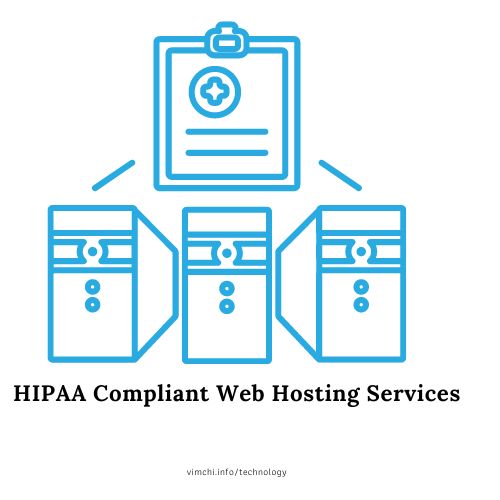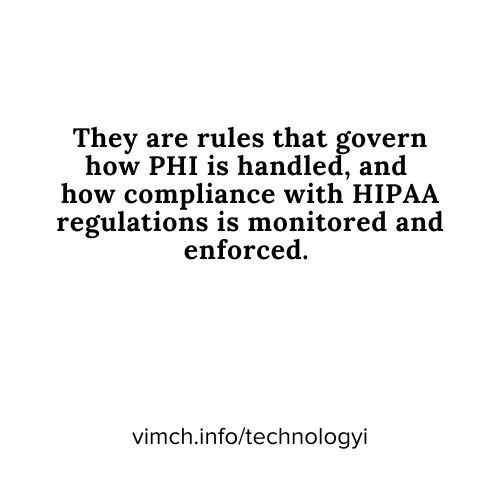Violating HIPAA can cost you millions of dollars. Remember what happened to Anthem in 2018? It paid a whopping $16 million after a health data breach. With that amount, it’s easy to see the importance of having HIPAA compliant web hosting service.
By complying with the rules, you’re protecting yourself from costly fines and legal nightmares. But if you aren’t conscientious, you’ll face serious risks.
What is HIPAA-Compliant Web Hosting?
First, we need to define what HIPAA is.
HIPAA (Health Insurance Portability and Accountability Act) is a set of regulations that require healthcare providers and other organizations that handle protected health information (PHI) to implement certain technical, administrative, and physical safeguards to ensure the confidentiality, integrity, and availability of PHI.
If you are looking to host a website that collects or processes PHI, you need to make sure that your web hosting provider is HIPAA compliant.
Why Is It Vital to Choose a Web Hosting Provider That is HIPAA-Compliant?
You don’t want to be sued. It’s a nightmare for any healthcare professional. That’s why, if you have a website that collects protected health data, then you need to comply with HIPAA regulations.
If you fail to comply with the requirements, you may pay legal and financial penalties.
PHI is highly sensitive data that you need to protect from unauthorized access or theft. If your provider is HIPAA compliant, then you are guaranteed that it places security measures to make sure that PHI’s integrity is intact.
Choosing a HIPAA-compliant web hosting provider can help you mitigate the risks associated with hosting a website that collects or processes PHI.
By partnering with a provider that is knowledgeable about HIPAA requirements and best practices, you can reduce the risk of data breaches, cyberattacks, and other security incidents.
In the healthcare industry, reputation is everything. If you are handling PHI, you need to ensure that you are doing everything you can to protect it. By choosing a HIPAA-compliant web hosting provider, you can demonstrate to your patients and partners that you take data security seriously.
Here are Our Top Choices for Web Hosting Providers That are HIPAA Compliant
1.) Atlantic
It’s a veteran in the web hosting world. It has had compliance-oriented hosting since 1994. That’s why it earned a solid reputation in the healthcare industry.
To ensure compliance and security, the company holds SOC2 Type II and SOC3 Type II certifications. Its solutions address every technical consideration for HIPAA. These would include firewalls, encrypted VPNs, and offsite backups, among others.
As a customer, you can pick either managed or unmanaged hosting solutions. Both options include a 100% uptime guarantee.
2.) Rackspace
It emphasizes healthcare compliance. Its cloud hosting service receives HITRUST CSF certification, which is a security framework customized to organizations just like Rackspace.
3.) Amazon Web Services
It’s one of the most popular options. AWS’s cloud environment lets you store, transmit and maintain sensitive PHI data.
It also has a risk management program that conforms with NIST 800-52. It also signs BAA, making it a perfect HIPAA-compliant partner for your website.
HIPAA Requirements Relevant to Web Hosting
If you are planning to host a website that collects or processes PHI, you must ensure that your web hosting provider is HIPAA compliant. The following are some of the HIPAA requirements that are relevant to web hosting:
- Technical Safeguards: Technical safeguards are the mechanisms that control access to electronic PHI (ePHI) and ensure its integrity. HIPAA requires that ePHI be encrypted during transmission and at rest, that access controls are in place to prevent unauthorized access, that audit trails are maintained, and that integrity controls are implemented to ensure that ePHI has not been tampered with.
- Administrative Safeguards: They are rules that govern how PHI is handled, and how compliance with HIPAA regulations is monitored and enforced. HIPAA requires that covered entities and their business associates have policies and procedures in place to address security incidents, perform periodic risk assessments, train employees on HIPAA requirements, and maintain documentation of HIPAA compliance.
- Physical Safeguards: These are physical measures that protect PHI, such as access controls, locks, and environmental controls. HIPAA requires that physical safeguards be in place to prevent unauthorized access to PHI, to protect ePHI from environmental hazards, and to ensure that electronic media containing ePHI is disposed of securely.
- Business Associate Agreements (BAA): HIPAA requires that covered entities enter into business associate agreements with their vendors and other entities that handle PHI. A BAA is a legal agreement that outlines the responsibilities of the business associate for protecting the confidentiality, integrity, and availability of PHI.
- Risk Assessment: HIPAA requires that covered entities and their business associates perform periodic risk assessments to identify vulnerabilities and threats to the confidentiality, integrity, and availability of PHI. The risk assessment must include an analysis of the likelihood and impact of potential threats, as well as a description of the security measures that are in place to address those threats.
Benefits of Choosing a HIPAA-Compliant Web Hosting Provider
HIPAA regulations require healthcare providers and their business associates to implement specific safeguards to protect protected health information (PHI). By partnering with a HIPAA-compliant web hosting provider, you can ensure that you are meeting these requirements and avoiding potential legal and financial penalties.
Keep in mind that PHI is highly sensitive information that needs to be protected from unauthorized access, disclosure, or theft. HIPAA-compliant web hosting providers have security measures in place to ensure the confidentiality, integrity, and availability of PHI. These measures can include encryption, access controls, audit trails, and disaster recovery plans.
Hosting a website that collects or processes PHI can expose your organization to various security risks, including cyber attacks, data breaches, and other security incidents. By choosing a HIPAA-compliant web hosting provider, you can mitigate these risks by leveraging the provider’s expertise in HIPAA requirements and best practices.
Building and maintaining an in-house HIPAA-compliant web hosting solution can be costly and time-consuming. By choosing a HIPAA-compliant web hosting provider, you can leverage the provider’s infrastructure, expertise, and economies of scale to achieve cost savings.

